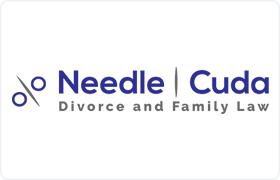 Windsor Child Custody Lawyers, Connecticut
Windsor Child Custody Lawyers, Connecticut
Sponsored Law Firm
-
 x
x

Click For More Info:
-
Needle | Cuda: Divorce & Family Law
830 Post Road East Suite 301 Westport, CT 06880» view mapDivorce & Family Law Experienced. Savvy. Straightforward.
At Needle | Cuda, we know when you come to see us that you may be going through the most difficult time of your life. That is why we style ourselves a “high touch” law firm.
203-557-9500
Includes: Guardianships & Conservatorships, Custody & Visitation
Sponsored Lawyers
1-1 of 1 matches
Accident & Injury, Estate, Divorce & Family Law, Criminal, Child Custody
John M. Loconsolo is a practicing lawyer in the state of Connecticut handling personal injury, criminal, family law, and estate cases.
(more)


 Melissa Needle Westport, CT
Melissa Needle Westport, CT Practice AreasExpertise
Practice AreasExpertise

